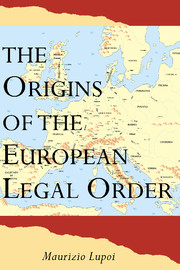Book contents
- Frontmatter
- Contents
- List of abbreviations
- 1 The early Middle Ages: a comparative approach
- 2 A historical and institutional profile of the Roman empire in the fourth and fifth centuries
- 3 Excursus I: ‘Barbarians’
- 4 Historical and institutional profiles of the ‘new dominations’
- 5 Excursus II : The days of the week
- 6 Excursus III: Anglo-Saxon charters
- 7 Consensus by assembly
- 8 Excursus IV: Authority and consensus in judicial decisions
- 9 Public allegiance
- 10 Excursus V: The Anglo-Saxon writ
- 11 Private allegiance
- 12 Open legal systems
- 13 Excursus VI: Textual ‘coincidences’ in documentary forms
- Chronology of popes and sovereigns
- Appendix of sources
- Bibliography
- Index
2 - A historical and institutional profile of the Roman empire in the fourth and fifth centuries
Published online by Cambridge University Press: 04 February 2010
- Frontmatter
- Contents
- List of abbreviations
- 1 The early Middle Ages: a comparative approach
- 2 A historical and institutional profile of the Roman empire in the fourth and fifth centuries
- 3 Excursus I: ‘Barbarians’
- 4 Historical and institutional profiles of the ‘new dominations’
- 5 Excursus II : The days of the week
- 6 Excursus III: Anglo-Saxon charters
- 7 Consensus by assembly
- 8 Excursus IV: Authority and consensus in judicial decisions
- 9 Public allegiance
- 10 Excursus V: The Anglo-Saxon writ
- 11 Private allegiance
- 12 Open legal systems
- 13 Excursus VI: Textual ‘coincidences’ in documentary forms
- Chronology of popes and sovereigns
- Appendix of sources
- Bibliography
- Index
Summary
Introduction
Eugipius recounts a prophecy that the monk Severinus made to a certain Odoacer when the latter visited him in the province of Noricum: ‘“Go,” he said, “go, for although now you are attired in the humblest of animal skins, soon you shall bestow great honours on many men.”’ This prophecy could represent the destinies of many individuals who, in the circumstances of the contemporary Roman empire, were able to change almost overnight from skin-clad, long-haired barbarians to commanders of the highest rank. Most modern historians consider that Odoacer's deposition of Romulus Augustulus, in 476, did not have any truly traumatic impact on contemporary consciousness: it was a ‘noiseless’ fall, as Arnaldo Momigliano has aptly put it. The event was not traumatic for two reasons: specifically because Odoacer was already in command of the troops in Italy, and the ousting of emperors – often ‘crowned puppets’- by military leaders was certainly no novelty; and generally because little or nothing actually changed in politics or in everyday life. The only novelty was the failure to replace the deposed emperor, but this omission – as has been rightly pointed out – acquired importance only by virtue of its duration.
Odoacer was not the leader of a people. His ethnic origins are unknown; he commanded an army in Italy made up of militias drawn from a variety of peoples seeking the benefits of hospitalitas. Even when he was proclaimed rex - a title implying a commander of the federated peoples of the Empire - he did not affix any territorial adjunct to his title, nor did he assume any insignia of rank.
- Type
- Chapter
- Information
- The Origins of the European Legal Order , pp. 5 - 46Publisher: Cambridge University PressPrint publication year: 2000



